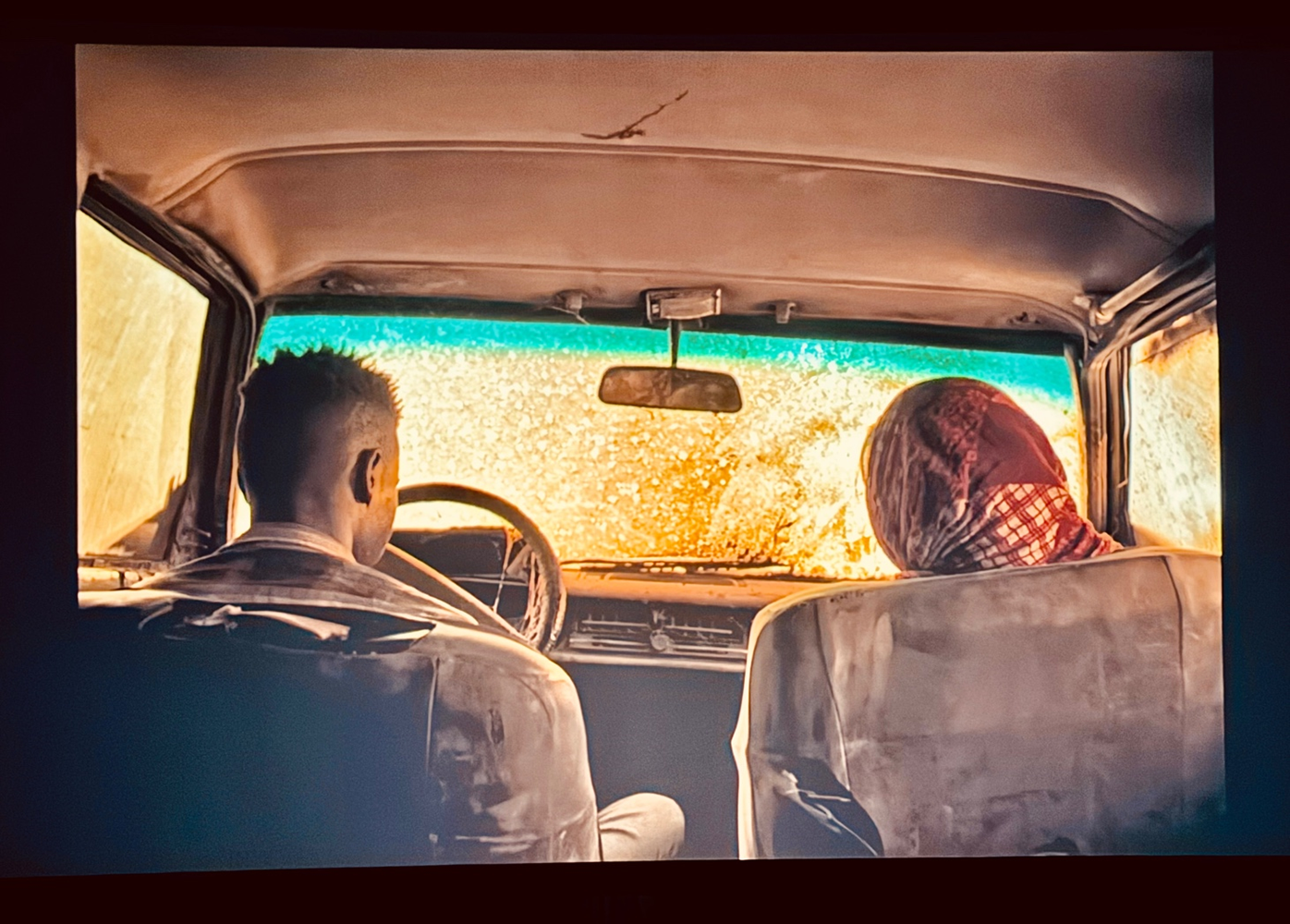Morad Mostafa, a native of Cairo’s Ain Shams district, has immersed himself in filmmaking since 2011. Without attending traditional film school, Mostafa refined his craft as an assistant director under the guidance of esteemed filmmakers. His directorial credits include Ward’s Henna Party (2020), Henet Ward (2020), Khadija (2023), and the acclaimed short film I Promise You Paradise (2023), which have garnered international acclaim and screened at prestigious festivals such as Cannes. Most recently, his feature film Aisha Can’t Fly Away (2024) secured the La Biennale di Venezia Prize at the Final Cut Programme for films in postproduction from Africa and Arab countries.
I Promise You Paradise was featured at the African Movies Festival in Manitoba (September 2024). It delves into the profound theme of uncertainty, evoking the apprehensions surrounding migration, the unpredictability of relationships, and the resilient hope that fuels the aspirations of countless young Africans seeking a better, yet unknown, future. We are introduced to 17-year-old Eissa amidst a tumultuous period in his life. His friend’s tragic death in a fight, which occurs off screen, sets the tone for Eissa’s journey. At his friend’s Orthodox Christian funeral, Eissa observes from a distance, an outsider in his own grief. However, his mourning is eclipsed by a pressing concern: the fate of his infant child, now in the church’s custody. Earlier, a priest had assured Eissa that the child would be adopted, but cruelly denied him visitation rights. Seizing the opportunity, Eissa uses the funeral as a distraction to reclaim his baby and reunite with his Egyptian girlfriend, waiting in a dusty, abandoned car. The urgency of their planned escape appears linked to the violent incident that claimed his friend’s life, but like many aspects of the narrative, this remains unclear.
The grim reality facing many young Africans is stark: unable to find decent employment, high school leavers and university graduates are forced to choose between menial jobs or a life of crime and violence. The tragic story of Eissa’s friend, as depicted in the film, serves as a poignant example of this crisis. Meanwhile, the film juxtaposes Eissa’s deep affection for his loved ones with the cold indifference of institutions meant to provide refuge. The church and mosque, expected to be beacons of hope, instead turn their backs on those in need. This reflects a disturbing trend in contemporary African society, where the most vulnerable are left to struggle alone, without access to basic care or support.
The film’s camerawork masterfully complements its sociological themes. Close-ups of Eissa effectively convey his melancholy, while shots of him on his motorbike—alone, with his girlfriend, or baby—symbolize the restless movement of youths navigating a challenging city or aspiring to migrate. Throughout the film, static camera shots dominate, focusing on characters or singular moments to emphasize context and nuance. A striking example is the medium shot of Eissa and his girlfriend seated in a ravaged car, surrounded by neglect and decay. The dusty windshield blocks their view, symbolizing their disconnection from a society that has abandoned them. As they turn their backs to the camera, this shot underscores their emotional isolation, amplifying the dramatic tension and sense of desperation that pervades their lives.

Morad Mostafa’s cinematic lens captures Cairo’s cityscape through the eyes of a migrant, perpetually in motion. With minimal dialogue, the focus shifts to the resilient young protagonist, Eissa, navigating his motorbike through the city’s chaos, bearing the weight of responsibility on his shoulders. The film poignantly conveys the struggles of migrant youth seeking solace in each other, finding refuge in a junkyard car. Institutional support from the church or mosque is conspicuously absent, offering neither spiritual nor material comfort.
Against a backdrop of societal disapproval, Eissa’s relationship with his Egyptian partner faces intense scrutiny. The adoption of their child would effectively erase her identity, providing a “solution” to the unplanned pregnancy. However, the film declines to resolve this ambiguity, instead centering on Eissa’s unyielding resolve to protect his family. Despite limited resources, Eissa invests his heart and energy into building a life. He purchases a baby carrier and embarks on a treacherous journey to Alexandria, where his family plans to cross the perilous Mediterranean Sea—a powerful symbol of migrants’ quests for hope and new beginnings.


